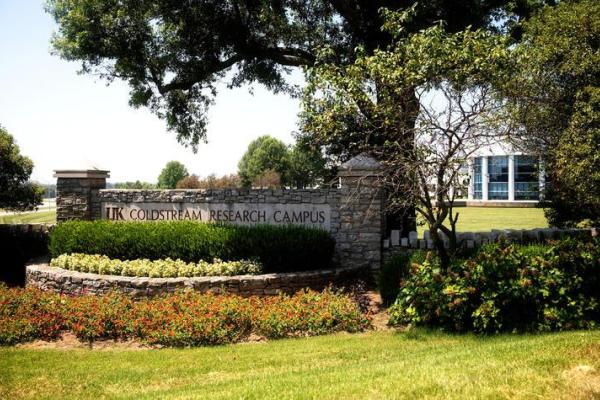UK researchers secure grant to enhance understanding, improve child welfare systems

Two researchers at the University of Kentucky are using their experience and expertise to conduct an innovative study aimed at improving the child welfare system and supporting families across the Commonwealth.
Shelby Clark, Ph.D., assistant professor in the College of Social Work (CoSW), and Elizabeth Riley, Ph.D., an assistant professor in the College of Public Health, have been awarded a grant from the Center for Clinical and Translational Science (CCTS) Small Grants Program for their project “Reimagining Child Abuse and Neglect Reports: A Qualitative Exploration of Attitudes and Beliefs about Mandated Reporting and Mandated Supporting.”
“Engagement with the child welfare system begins with a report of child abuse and neglect, so this is an important place to intervene and rethink practice,” Clark said. “Rather than immediately making a child abuse and neglect report, encouragers of mandated support suggest communities ‘wrap around’ families to provide resources and services to better meet their needs.”
Mandated reporting and mandated supporting are two distinct concepts within the child welfare system.
Mandated reporting refers to the legal obligation to report suspected cases of child abuse and neglect. Certain professionals (teachers, health care workers, social workers, etc.) receive specialized training on reporting. However, with her background as a child welfare worker, Clark understands the ambiguous and emotionally charged nature of this topic.
“My research is informed by my practice experiences,” Clark said. “My social work identity is important and significant to my worldview and how I approach social problems, and how I seek to solve them in my research.”
Mandated supporting involves providing assistance, resources and services to families in need — often under the supervision of child welfare agencies.
While mandated reporting focuses on identifying and responding to abuse or neglect, mandated supporting aims to intervene early and support families in crisis to promote child well-being and prevent further harm.
“We need more scholarship focused on understanding how children, families and communities can be better supported by a network of public systems — as opposed to relying solely on the child welfare system via the mandatory reporting hotline,” Riley explained. “A number of states and agencies around the nation are starting this work, and we’re excited to explore what mandatory supporting could look like in Kentucky through a social work and public health lens.”
Clark and Riley’s study also explores how people working in human service contexts (education, health care, social work, etc.) come to the decision to report abuse and neglect, what their training is to make that decision and how they feel about the decision afterwards.
Additionally, the CCTS-funded research aims to better understand human service workers’ needs around mandated reporting and mandated supporting.
“Right now, there is recognition the child welfare system as it stands is causing harm — specifically among Black and Indigenous people,” Clark explained. “Rather than just calling into an abuse and neglect hotline, we should be asking, ‘how do we support that family?’ The idea is to reduce the number of children who enter the child welfare system unnecessarily and to reduce the harm caused by investigations and children being removed from their homes and families.”
While many advocate for these shifts, little is empirically known about how human service professionals conceptualize mandated reporting. “Additionally, little is known about what mandated supporting could, or should, be in actual practice,” Clark explained. “Therefore, research is needed to better understand both mandated reporting and mandated/community support models.”
Clark and Riley will also be partnering with the Department for Community Based Services and Prevent Child Abuse Kentucky to report their findings and explore opportunities to shape policy and practices in their respective child welfare settings.
“We are excited and grateful that CCTS saw the value in this project, and we strongly feel there’s a large value add to the Commonwealth to better understand how human service professionals are thinking about mandated reporting and mandated supporting,” Clark said. “Ultimately, we want to build programming to better support children and families in Kentucky.”
Research reported in this publication was supported by the National Center for Advancing Translational Sciences of the National Institutes of Health under Award Number UL1TR001998. The content is solely the responsibility of the authors and does not necessarily represent the official views of the National Institutes of Health.
Credits
Breanna Williams and Lindsey Piercy

